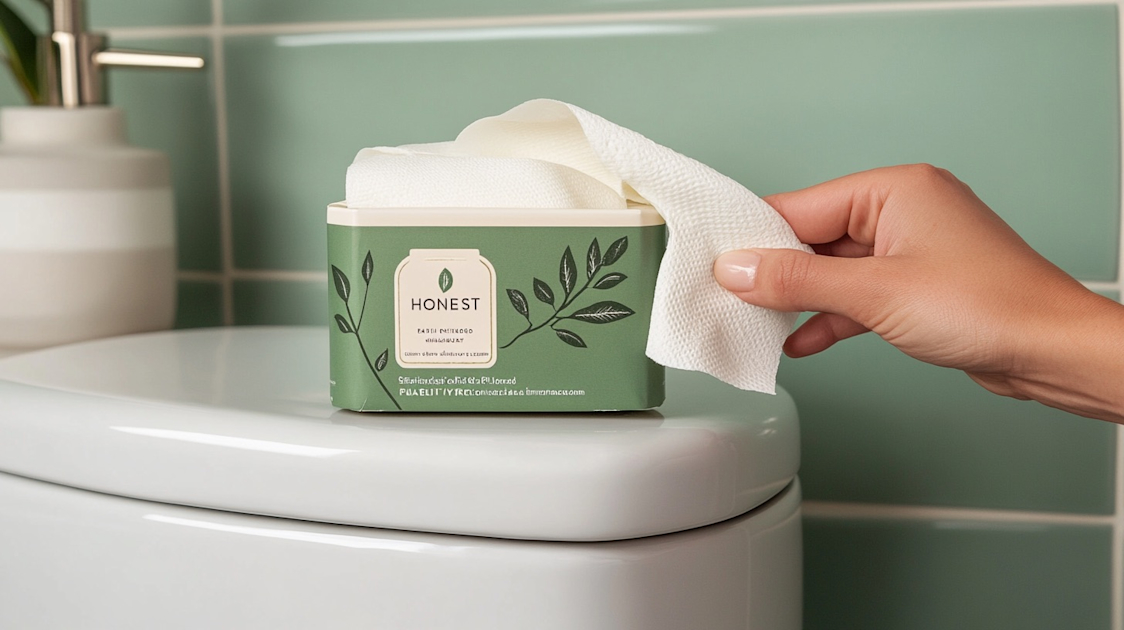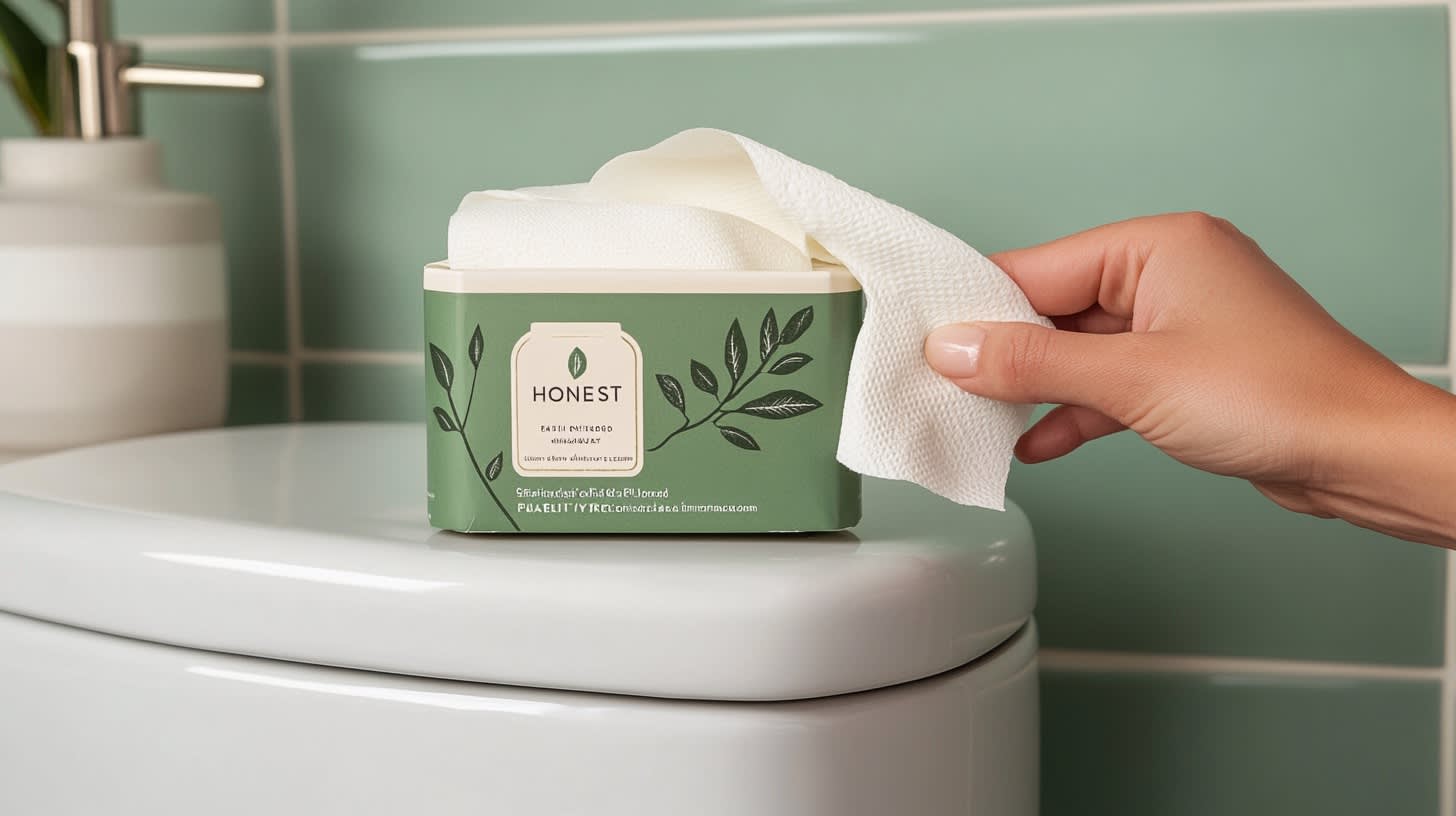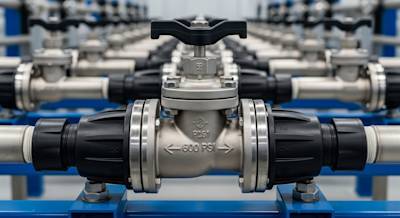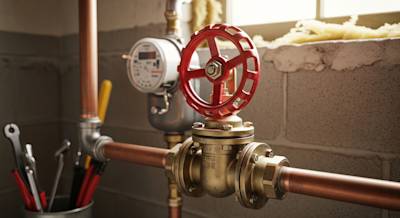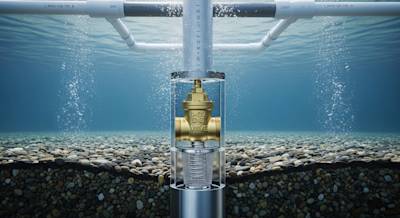Flushable wipes have become a desirable must-have product in virtually every bathroom due to their significant features of promoting hygiene and convenience. No doubt, flushable wipes are universally proving to be something beyond just ordinary wet wipes. However, it's essential to deeply understand their attributes, uses, benefits, eco-friendly aspects, and suitable disposal techniques.
Describing the Flushable Wipes
Flushable wipes, also known usually as "wet wipes", are personal cleaning cloths that are predominantly used for personal hygiene and cleanliness. They come saturated with solutions, chemicals or lotions that allow for the elimination of germs and dirt.
Their delicate, silky fabric enables them to swiftly slide on your skin, making for a perfect alternative to traditional toilet papers, but with added benefits of comfort, convenience and superior cleanliness, making one feel incredibly fresh and rejuvenated.
Ensuring Intelligent Uses of Flushable Wipes
Flushable wipes are mostly popular and predominantly used in:
- Personal hygiene: Especially to clean after using the toilet
- Baby care: Cleaning babies during diaper changes
- Skin care: Makeup removal, refreshing or cooling skin, etc.
- Household cleaning: Useful in tackling certain household cleaning tasks
- Traveling: Perfect portability for any journey
Understanding Flushable Wipes Benefits
The usage of flushable wipes extends beyond a soft feel and fresh fragrance. Here is a list of benefits worth considering, which make these wipes universally adored:
- Hygienic: Flushable wipes offer superior results in terms of personal cleanliness compared to regular tissue papers.
- Durable: They are more substantial than regular toilet paper and less likely to break apart or shred.
- Convenient: The wipes are ready to go, needing no additional water or soap. They’re also portable, being available in travel-friendly packaging.
- Protective: Most are formulated with mild cleaning agents that are skin-friendly, ensuring they do not cause irritation or allergenic reactions.
- Easy disposal: They are designed to disintegrate in water, allowing them to be flushed down the toilet.
The Debate over Flushable vs Non-Flushable Wipes
When it comes to determining flushable wipes against non-flushable ones, it comes down to their design and build material. However, both types serve a similar purpose, which is to promote cleanliness and hygiene.
In general, non-flushable wipes are typically thicker and more enduring, intended for multiple uses before disposal, and aren't designed to break down when flushed. On the other hand, flushable wipes are thinner and designed to break down easily in the sewage system.
Choosing the Right Flushable Wipes
There are several considerations one might make while choosing the right flushable wipes. These include:
- Brand reputation: Choose a reputable brand that complies with necessary PDAs and follows industry manufacturing standards.
- Ingredients: Look for alcohol-free and hypoallergenic wipes that don’t include harsh chemicals to avoid skin irritation.
- Biodegradability: Choose wipes that are biodegradable, promoting eco-friendliness.
- Packaging: Prefer resealable packaging which keeps the wipes moist for longer periods.
Disposing of Flushable Wipes Responsibly
Despite their name, not all flushable wipes disintegrate properly in water or plumbing systems, leading to potential blockages over time. Hence, one should be conscious about the usage and disposal of these wipes.
It's always wise to limit the number of wipes we flush down the toilet, irrespective of their label. For proper disposal, consider using a rubbish bin or composting them, if possible.
Frequently Asked Questions about Flushable Wipes
How Are Flushable Wipes Different to Baby Wipes?
While both are moistened tissues designed for cleaning, baby wipes and flushable wipes serve different purposes. Baby wipes are primarily for cleaning a baby during a diaper change. They may contain substances that help soothe the baby’s skin. On the other hand, flushable wipes are used for personal hygiene and are made to be septic-safe, meaning they can be flushed down the toilet.
Do Flushable Wipes Disintegrate Like Toilet Paper?
Not exactly. While flushable wipes are designed to break down in water, they take longer to disintegrate compared to toilet paper. This extended disintegration time can potentially lead to plumbing issues, particularly blockages.
Are Flushable Wipes Septic-Tank Safe?
Flushable wipes are often labeled as septic-safe, which theoretically means they should break down in the septic tank like toilet paper. However, because they take more time to disintegrate, continual or excessive use could lead to problems. It would be prudent to limit your use of flushable wipes if you're on a septic system.
Can Flushable Wipes Cause Plumbing Issues?
There have been instances where excessive use of flushable wipes has led to plumbing blockages. Because these wipes take a longer time to break down compared to toilet paper, they can cluster and form a mass if not properly disbursed. That's why it's recommended to only flush one or two wipes at a time, regardless of what the packaging says.
Can I Use Flushable Wipes Instead of Toilet Paper?
Flushable wipes can certainly be used as an alternative to toilet paper. However, due to the potential plumbing issues they can cause if overused, it's not recommended to completely replace your toilet paper with these wipes.
Are Flushable Wipes Bad for the Environment?
While the effect of flushable wipes on the environment largely depends on the specific brand and its formulation, it's generally accepted that they pose environmental concerns. Unlike toilet paper, flushable wipes can take a long time to break down, leading to larger volumes of waste. Furthermore, some wipes contain plastics or synthetic fibers, which are not biodegradable.
Can I Make My Own Flushable Wipes at Home?
Yes, it is possible to make your own flushable wipes at home using readily available household items such as bathroom tissue. Homemade wipes have the benefit of allowing you to control the ingredients used, which can be beneficial for people with sensitive skin.
Are All Flushable Wipes the Same?
No, not all flushable wipes are the same. They can vary in terms of thickness, size, scent, and pricing. Some wipes are biodegradable while others are not. It's essential to carefully read the features and benefits listed on the packaging to get the flushable wipes that best suit your needs.
Pros of Flushable Wipes
Convenience
Easy and Quick to Use
"Flushable" wipes are becoming increasingly popular due to their convenience. They are very easy to use and provide a quicker clean-up option compared to traditional toilet paper. One or two wipes can often do the job that may require several pieces of toilet paper.
Portability
Flushable wipes are typically packaged in small, sealed containers that make them easy to carry around in a purse, backpack, or even pocket. This makes them ideal for traveling, camping, or any other situation where access to a bathroom may not be immediately available.
Comfort
Soft and Gentle on the Skin
Unlike toilet paper, which can sometimes be rough and irritating, flushable wipes are designed to be gentle on the skin. They are often moistened with lotions or aloe vera, which can make them more comfortable to use, particularly for people with sensitive skin.
Fresh and Clean Feeling
Using a flushable wipe can also leave you feeling fresher and cleaner than using dry toilet paper alone. The moisture in the wipes helps to thoroughly clean the area, and some wipes also contain mild cleansers to enhance the cleaning process.
Versatility
Flushable wipes are not only for bathroom hygiene. They are also handy for quick clean-ups after meals, wiping sweaty faces and hands after workouts, or refreshing during a hot day. Some people use them for make-up removal, as they are gentle and don't dry the skin.
Cons of Flushable Wipes
Environmental Concerns
Not Truly Flushable
Despite what their name suggests, “flushable” wipes are not truly flushable. Most of these wipes do not break down as quickly as toilet paper and can cause blockages in the plumbing system leading to expensive repairs. Municipal sewer systems and wastewater treatment plants are already dealing with considerable problems caused by these wipes getting stuck in the pipes.
Non-Biodegradable
Most of the flushable wipes available in the market are not biodegradable. Unless they are clearly marked as such, these wipes will not decompose and instead end up filling the landfills. This poses a significant issue in terms of waste management and environmental sustainability.
Health Concerns
Skin Irritation
Despite being advertised as skin-friendly, some flushable wipes contain chemicals and fragrances that can cause mild to severe irritation, especially for people with sensitive skin. Extended use of these products can lead to rashes, allergic reactions, or dermatitis.
Disrupted PH Balance
Some types of flushable wipes, especially those intended for intimate areas, may disrupt the natural pH balance, leading to discomfort or even infections.
Economic Impact
Expensive
In comparison to traditional toilet paper, flushable wipes are significantly more costly. If used regularly, the costs can add up, making this a less economical option.
Plumbing Issues Lead to High Costs
The blockages caused by flushable wipes can lead to expensive plumbing repairs. More often than not, the responsibility to cover these costs falls on the homeowners, who may not be aware of the issues caused by disposing of these wipes down the toilet.
Misleading Advertising
"Flushable" Claims
Flushable wipes are often marketed as a comparable alternative to toilet paper that can be safely flushed away. However, as discussed, these claims can be misleading. In most cases, wipes labeled as "flushable" do not break down efficiently in water, leading to serious plumbing issues. Such deceptive advertising practices can lead consumers to unknowingly contribute to environmental and infrastructural problems.
Understanding Flushable Wipes and Their Myths
Flushable wipes have understandably gained popularity because of their effective cleaning capacity and apparent convenience of use. However, there are a number of misconceptions surrounding their use that need to be examined in greater detail for clarity.
Myth 1: Flushable Wipes are Just as Safe as Toilet Paper
This is arguably the most common misconception surrounding flushable wipes. While they may seem similar due to their shared use, the reality is that they are fundamentally different.
The Difference on a Microscopic Level
Toilet paper is designed to break down very quickly when it comes into contact with water. Its fibers are short, which allows it to dissolve rapidly in your plumbing system. On the other hand, while many flushable wipes claim to be just as safe and disintegratable as toilet paper, they do not break down as quickly or completely. Many retain a large portion of their structure even after being flushed, contributing to blockages in pipes and complications in water treatment facilities.
Myth 2: Flushable Wipes are Biodegradable
The term 'biodegradable' is often used synonymously with 'environmentally friendly.' However, not all flushable wipes are truly biodegradable.
The Long Road to Degradation
For a product to be considered biodegradable, it must be capable of being decomposed by bacteria or other natural organisms and eventually integrated back into the environment. The name 'flushable wipes' might suggest these items are biodegradable, but in reality, many brands use synthetic fibers that do not break down easily in the environment. Some might even take hundreds of years to degrade fully. Therefore, it is crucial to check whether the packaging explicitly states that the wipes are 'biodegradable.'
Myth 3: Flushable Wipes are Safe for Septic Systems
Despite the claim on many packages, not all flushable wipes are safe for all septic systems.
Septic Systems and Wipes
Septic systems rely on a delicate balance of bacteria to break down the waste in your tank. While toilet paper is designed to disintegrate quickly and not disrupt this bacterial balance, flushable wipes don’t always follow suit. They can take longer to break down, eventually leading to clogs and other serious issues.
Myth 4: If a Wipe is Labeled 'Flushable', It Must Be Safe to Flush
Just because a wipe is labeled 'flushable' does not necessarily mean it is safe to flush. The term 'flushable' can be misleading.
The Misleading Nature of The Word 'Flushable'
You might assume that if a product is labeled as 'flushable', it must be safe to flush down your toilet. However, this isn't always the case. In the industry, 'flushable' simply means a product won't clog your toilet when you flush it. It doesn't take into account what happens after the initial flush. 'Flushable' wipes can still get stuck in your pipes, cause blockages, and wreak havoc in water treatment centers.
Myth 5: Flushable Wipes Cause No Problems at Water Treatment Facilities
Actually, flushable wipes are a significant cause of problems at water treatment facilities.
Effect on Water Treatment Facilities
Despite claims to the contrary, many water treatment facilities have reported problems caused by flushable wipes. Because these wipes do not break down as easily or quickly as toilet paper, they can form blockages in the facilities' equipment, requiring ongoing maintenance and repair. Some cities have even had to invest millions in upgrades to their systems just to deal with the effects of wipe waste.
In conclusion, the term 'flushable wipes' can be quite misleading, and several myths surround their use. To avoid potential problems, it is recommended to use these wipes sparingly and dispose of them properly, rather than flushing them down the toilet.
Summary
Sounds like you've really been considering the ins and outs of flushable wipes! They sure seem like a convenient solution. Sure, popping them in the toilet seems like the best and easiest way to get rid of them. You're not alone, many people are making the switch from traditional toilet paper to these handy wipes. They're softer, thicker, and one sheet usually does the job that takes several squares of toilet paper.
But the thing with flushable wipes is, they're not as flushable as they claim to be. While they may disappear from sight as soon as you flush, they're causing damage we don't see. Unlike toilet paper that breaks down right away, these wipes can take years to decompose. This can cause blockages in both your home plumbing and city sewage systems. Not to mention, their impact on the environment is pretty significant.
So, let's step back and rethink using flushable wipes. Sure, they're a bit more comfortable and seem cleaner, but the overall cost might not be worth it. Not just the monetary cost, but also the cost to our plumbing, sewage systems, and ultimately, our environment. It’s important to be aware of the whole picture, even if it's not immediately obvious. So when it comes to flushable wipes, let's treat them like regular wipes - trash 'em, don't flush 'em.
About KYPD Plumbing
KYPD Plumbing is your friendly, reliable, neighborhood plumber in Lexington, KY. With a trustworthy team of experienced professionals and an unbeatable record of superior service, we're here to handle all your plumbing needs. From emergency service calls to routine maintenance, we approach every job with the same commitment to quality and customer satisfaction. Plus, we understand plumbing problems don't follow a 9 to 5 schedule, so we're available when you need us – right here in the heart of the Bluegrass State. Reliable, responsive, and ready to help – that's KYPD Plumbing for you!
Tags: flushable, wipes, cleaning,

